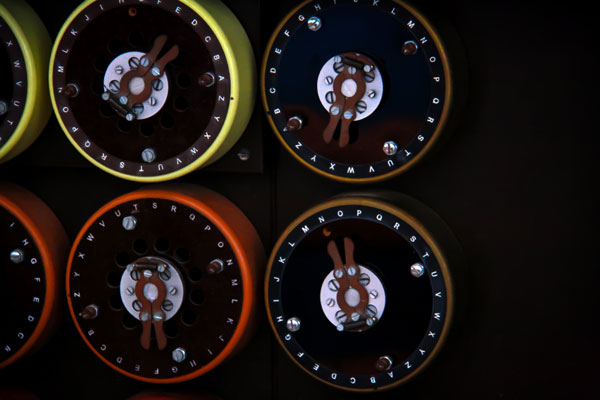
“Sometimes it is the people no one imagines anything of, that do the things no one can imagine”
On a rainy Sunday afternoon I recently found myself engrossed in the 2014 historic drama ‘The Imitation Game’, lead character Alan Turing portrayed eloquently by the enigmatic Benedict Cumberbatch. For those who have not caught this flick, it is highly recommended, if not for the various acting triumphs, then at least for its historic significance. Now this isn’t a sappy film review as such, think more along the lines of a time for recognition and perhaps some re-thinking.
What proves to be staggering is that were it not for the valiant efforts of Mr Mumblebatch and his band of merry actors, this historical gem of a story may never have seen the light of day, its details long held secret by Mi5. Loosely based upon a biography of Turing written in the early ‘80s with the inevitable dramatisation for the big screen, the story tells of Turing’s rapid rise through the ranks of the Bletchley Park code breakers to become the leading hope in breaking the Nazi Enigma code and hopefully winning the war.
Turing however had a rough time of it to be honest. Growing up as a gay man in a time when such things were a criminal offence, he is penned unsurprisingly as somewhat socially awkward. With an IQ of 185 he was deemed a super-genius yet at that time lead a paradoxical life, dedicating himself and his life to his mathematics and science, all the while hiding a secret that could land him locked up and actually ruin his life.
What is clear however is that Turing was most definitely different, some may say an odd ball. He was indeed the round peg in a square hole but what needs to be remembered is that he was an outstanding thinker; he imagined, he questioned, he created, he inspired. He saw things differently and to be honest he drove the human race forward in one of the biggest leaps of the century.
Were it not for ‘Christopher’, Turing’s marvellous computer, you may not be reading this very article today. He paved the way for computing technology, artificial intelligence and countless other innovations that we take for granted today.
In a time where we are all engrossed in artificial lives created on mobile devices and media, the world needs more people like Turing. We need the thinkers, people who are beyond themselves; visionaries, creatives, writers and makers.
Some may say these people are a bit crazy, but you know what, maybe we need the crazy ones, as they are the ones that think a little differently, re-write the rules and actually get things done.
And at Westbrook we are proud to think that we are just a little crazy too.
Just as a poignant foot note, after the war Turing was arrested and charged for being a homosexual. In 1954 at the age of only 41 he tragically committed suicide (though the cause of death is still disputed).
In 2013 the Queen granted Turing a posthumous pardon. The ‘Alan Turing Law’ is now an informal term for a 2017 law in the UK that retroactively pardoned men cautioned or convicted under historical legislation that outlawed homosexual acts.
Even in death Alan still managed to continue to change the world.

